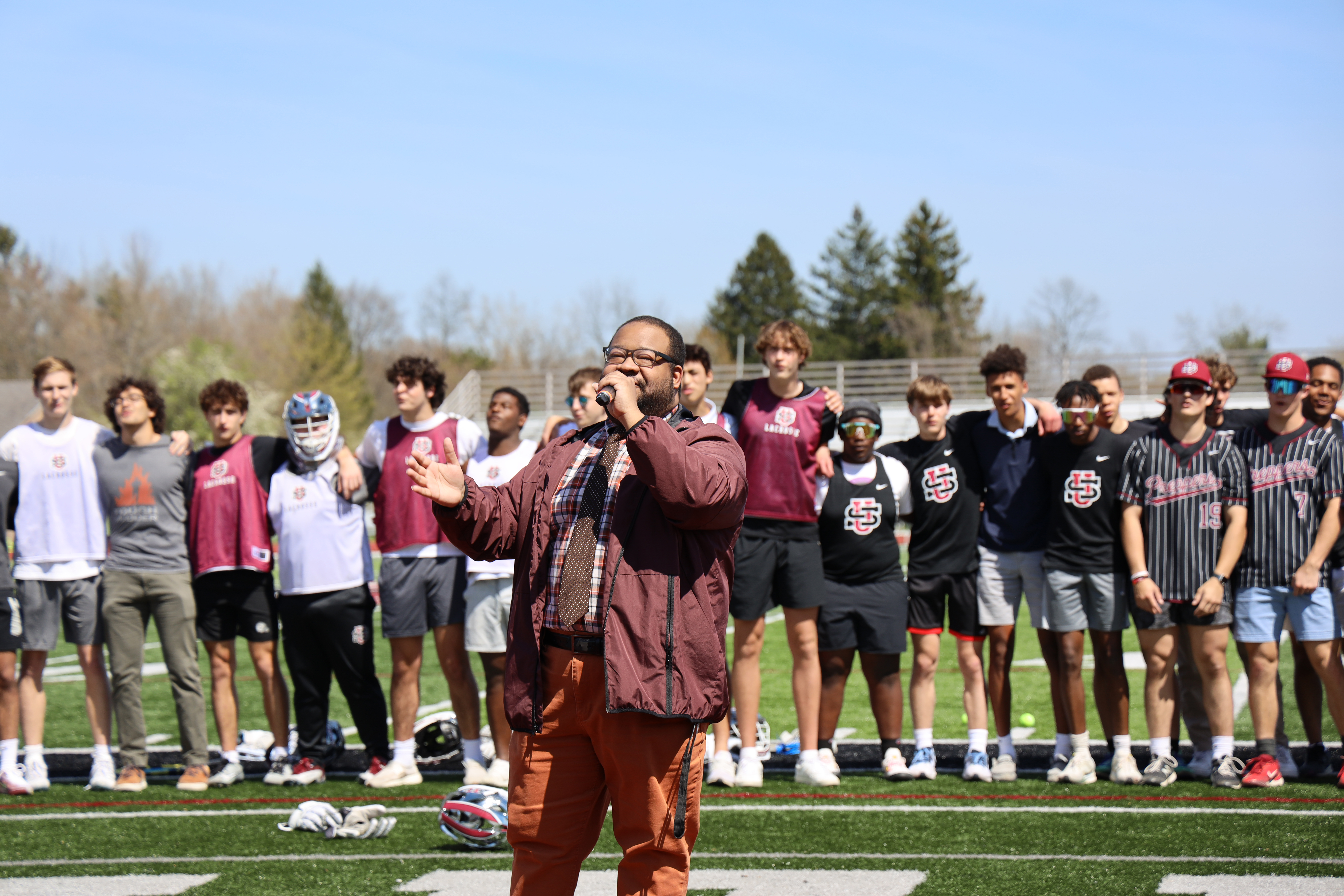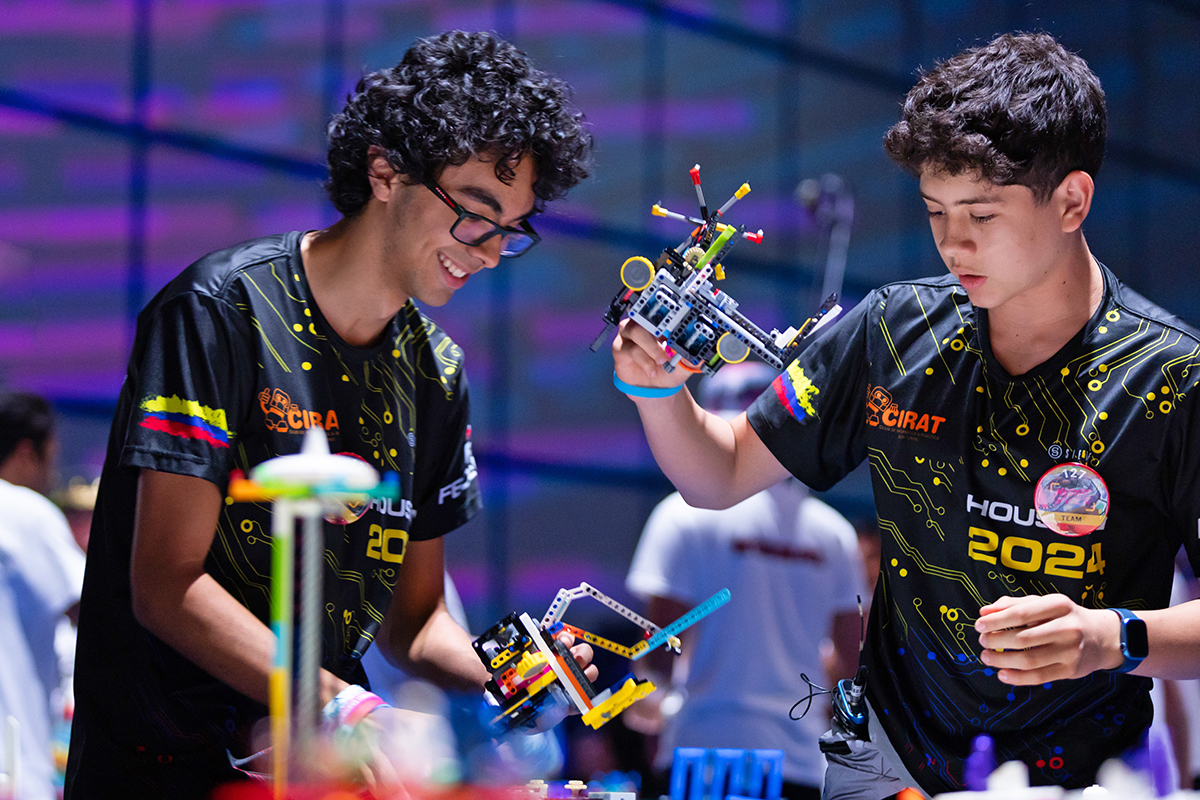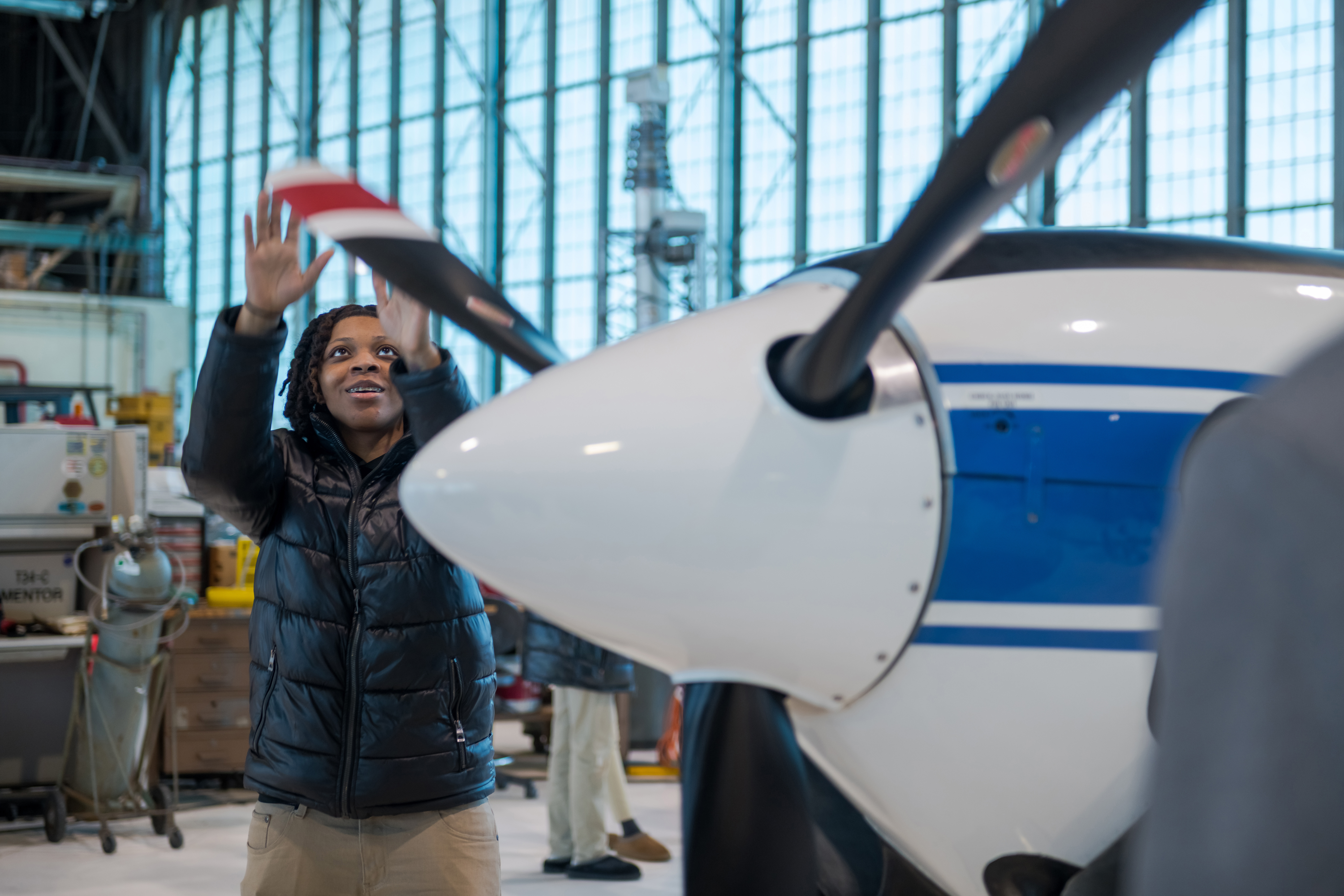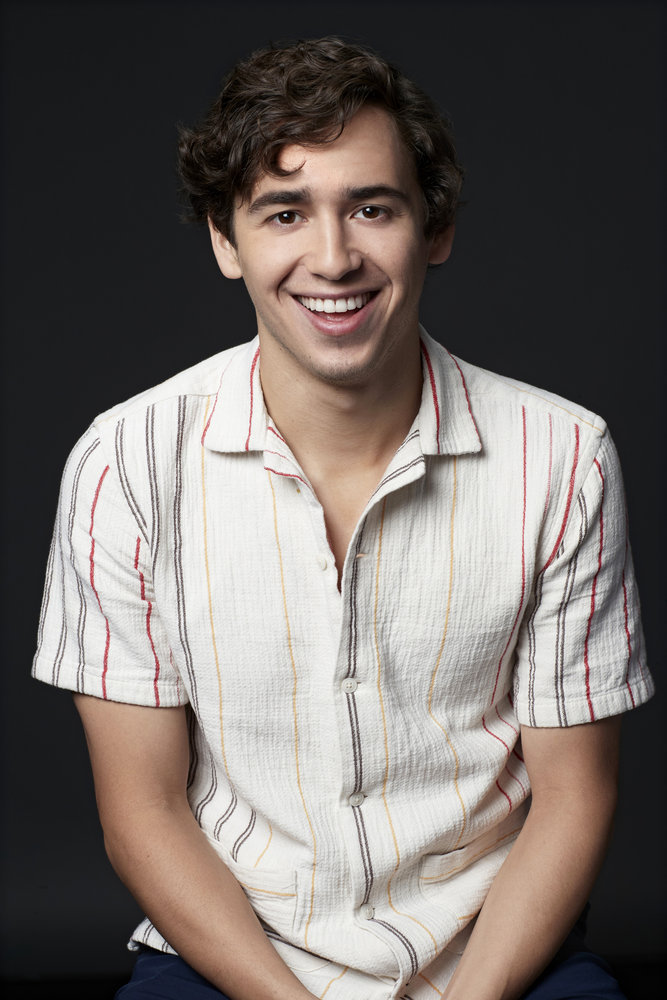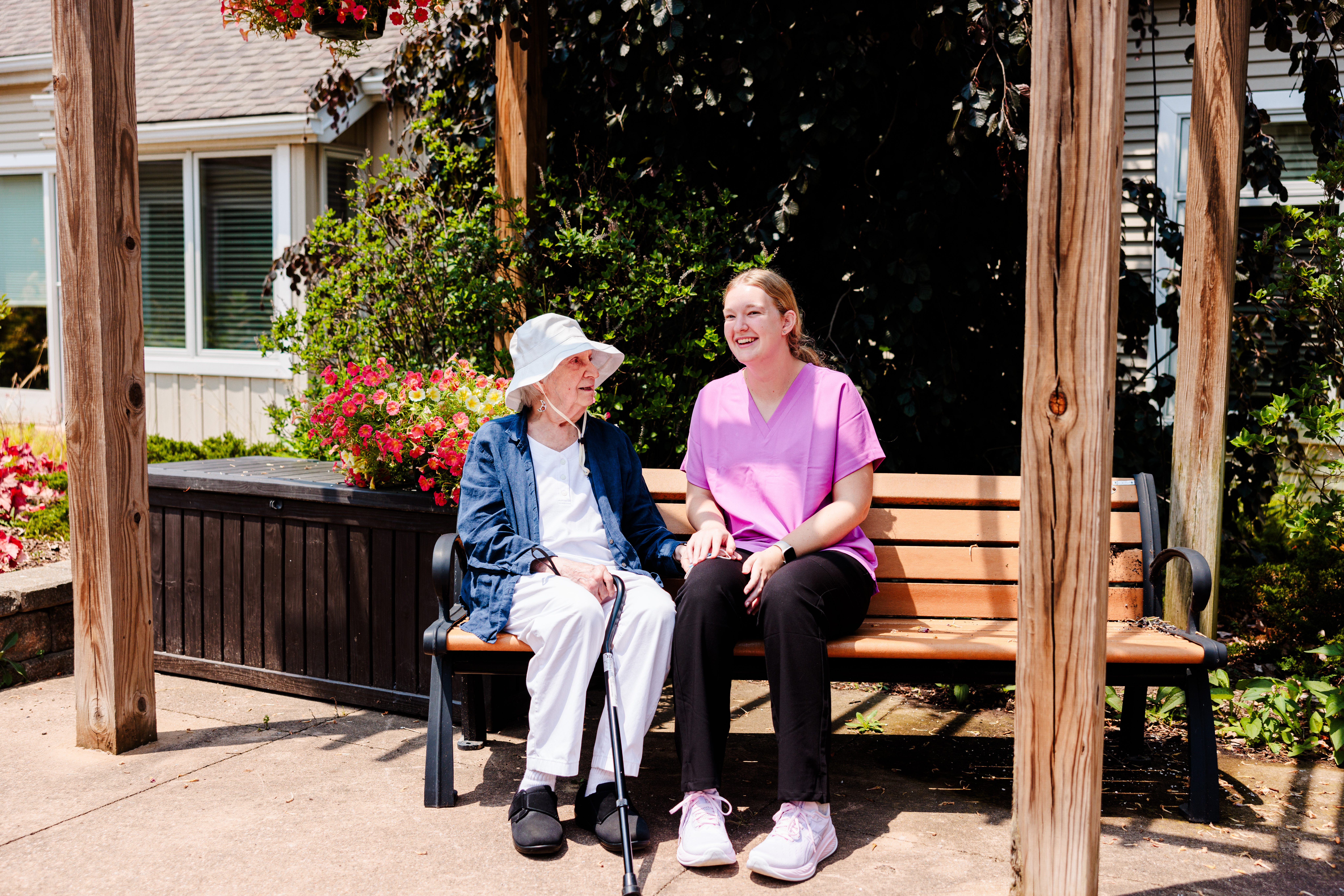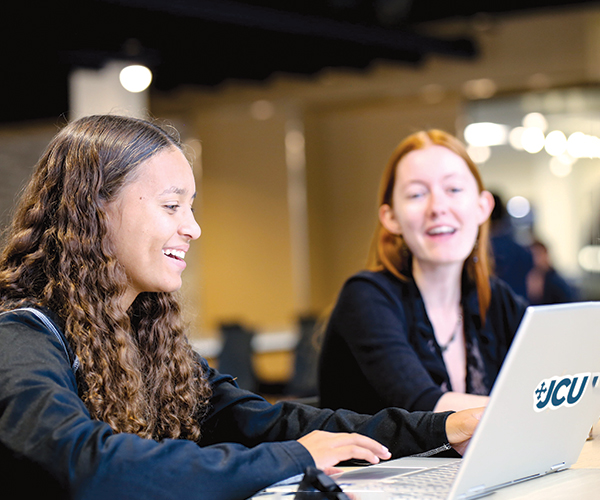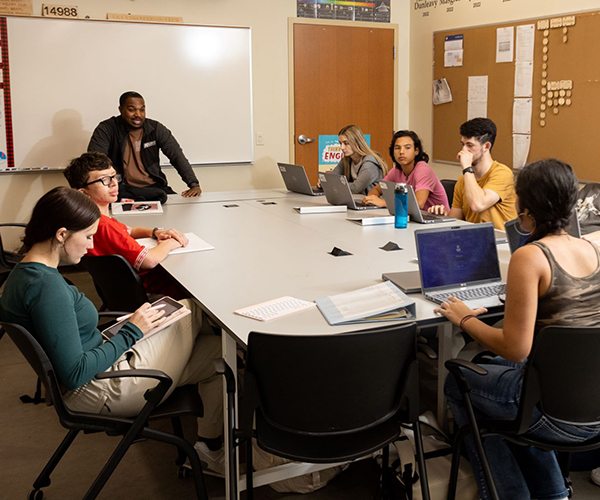Joining the 'In' Crowd
Universities share insight on how students can get into their first-choice school.
by Myra Orenstein | Sep. 28, 2005 | 4:00 AM
There should be a support group for parents of college-bound high school seniors. As one who has been there before and is about to go through it again, I know of what I speak.
It’s like teaching your children to drive. You lose many hairs and watch your blood pressure rise, but you get through it somehow and take a deep, calming breath at the end of the process, knowing it was worth it in the long run.
For my family, it began three years ago. Our son Danny wanted to attend a five-year architecture program. While many colleges notify students of their admission decisions in April, some of his choices notified him early. Pratt Institute, Illinois Institute of Technology and Syracuse University all accepted him. Not bad. But, it was not enough for Danny. He wanted Carnegie Mellon University — and he wanted it desperately.
So when the letter arrived informing him that he had been wait-listed, he had mixed feelings — after all, they hadn’t rejected him — but then again, they hadn’t accepted him either. And, that’s when it began: the campaign to get Danny Orenstein into Carnegie Mellon.
With 26 days until the final decision, he made a decision. He was going to brand himself. Using the alphabet as the basis for his “campaign,” he discovered a new fact about Carnegie Mellon every day for 26 days, each coinciding with the next letter of the alphabet. From “A is for Andy Warhol, an artist who attended Carnegie Mellon” to “Z is for Form Z, an architecture software program devised by an alum of Carnegie Mellon,” Danny found graphics and information to bolster his campaign. Each message was sent to Carnegie Mellon Admissions in a black, portfolio envelope (to further promote his “brand”) and each ended with something like, “Danny Orenstein is an artist (or whatever best tied the message together). He wants to attend Carnegie Mellon.”
After 20-something days of running to the post office (He sent three on Fridays — one each for Friday, Saturday and Sunday), the day finally arrived. Carnegie Mellon begins making phone calls at 6 p.m. to inform candidates of its decision. It was 6 p.m. The phone rang. It was the Admissions Office.
The message they conveyed was simple: Danny was the first person they had called from the waitlist. They were so impressed with his campaign that they looked forward to its arrival every day. The admissions officers said they actually learned more about the university because of it. Oh yes, and by the way, he was accepted.
The good news for parents and children everywhere is that not everyone has to go to the lengths that Danny did. In fact, what I have discovered prior to taking my daughter Becky on her round of interviews and campus tours, is that finding out what colleges want is really not such a mystery after all.
Let’s take as granted that all colleges and universities want bright, interesting, enthusiastic kids who have good grades, SAT scores and activities. Now, let’s see what sets them apart — and what you might learn from how some top universities evaluate them.
Case Western Reserve University — Undergraduate admissions takes what they refer to as a “holistic approach.” Sure, they look for honors classes and all the rest, but they want students whom they believe will “add value” to the university. “We’re interested in co-curricular activities and leadership in high school,” says Chris Munoz, vice provost for undergraduate enrollment at Case. “We also want people who have had a wide variety of experiences.”
Denison University — “Rigor” was the word used most often when describing what this college looks for in its freshmen — both “significant rigor in curriculum choices in high school” and “rigor of the high school they are attending.” Yet in addition to the courses completed (and the extra nod given to post-secondary enrollment courses and AP courses taken), “We are concerned about how the student writes,” says Perry Robinson, vice president and director of admissions at Denison University. “We are a small college and have the luxury of reading each essay. Writing is an important part of not only our humanities classes but all of our arts and sciences classes.” Denison also looks favorably on students who request interviews. “They provide us the opportunity to get to know the student beyond the objective information provided with grades and test scores, and they give the student the opportunity to show his or her interest level in Denison or talk with professors,” Robinson says.
Hiram College — After citing the college’s acceptance of Isaac Graves — a home-schooled student who traveled around the world on his own for a year, taught in New Zealand and experienced the aftermath of the tsunami — as an example of the type of intellectual curiosity that is attractive to Hiram, executive director of admission Jim Barrett admits that most students don’t have to go to those lengths. “There’s always something about our students that sets them apart,” he explains. “We believe there is always room at the top for students who show a commitment to academics.”
Northwestern University — According to Keith Todd, director of undergraduate admission, “We are looking for an application that hangs together, in which the writing is honest and shows independent thought.” Northwestern does not accept the common application since the school “likes to ask its own questions,” some of which are designed by the previous year’s students. It also encourages students, whenever possible, to participate in on-campus interviews. “We don’t make our decision based on campus visits. It’s not economically feasible for some students to visit Northwestern. But we do count contacts. … We track them. We visit 50 cities ourselves and encourage students to interview in their hometowns.” Northwestern also tracks contacts made electronically and via phone.
As for trying to earn “brownie points” by sending cookies or other baked goods to sweeten the chance of acceptance at this Big Ten School? Don’t waste your time. “They wouldn’t get any further than our hard-working office staff,” Todd says, laughing. “They would enjoy them, but we prefer to work blind.”
The College of Wooster — Like many other top schools, Wooster places emphasis on writing skills, not only the message delivered in the essay, but also its development, grammar and syntax, according to Ric Martinez, associate director of admissions and Wooster alum. He also encourages students to interview — not just once, but twice. Martinez sees an interview as part of the evaluative process. “Some students thought they weren’t Wooster students after visiting here,” he says. “A campus visit can absolutely drive the student’s decision one way or another.” He encourages applicants to schedule a second campus visit, stay overnight, talk with professors and get a feel for the school. “Each staff member evaluates 300 [application] folders apiece. I timed it once. If we only looked at standardized test scores, it would take 23 seconds to look at a student. It takes us 45 minutes to an hour per student to get through their folders,” he says.
Yale College of Yale University — “We look for energy, the capacity to be committed to one thing, and interesting human beings,” says Margit Dahl, acting dean of admissions and financial aid at Yale. The essay takes on a unique importance at Yale, where they pay particular attention to the words used. “We are looking for students who have a curiosity,” she explains. Students described by their teachers as those who instill liveliness in the classroom or are curious about their subject matter are most appealing. “If a student gets straight A’s and has great test scores, we might be less interested in that student than the one sitting next to her who has less than an A who would ask, ‘What more can I read about that? What else can be learned from this?’ To us, the second student is much more into teaching and learning than the other. That’s the student we want.” Because Yale is heavily residential, the admissions office also looks for a student who will become “a member of the community.”
Trending
-
1
-
2
-
3
-
4
-
5

